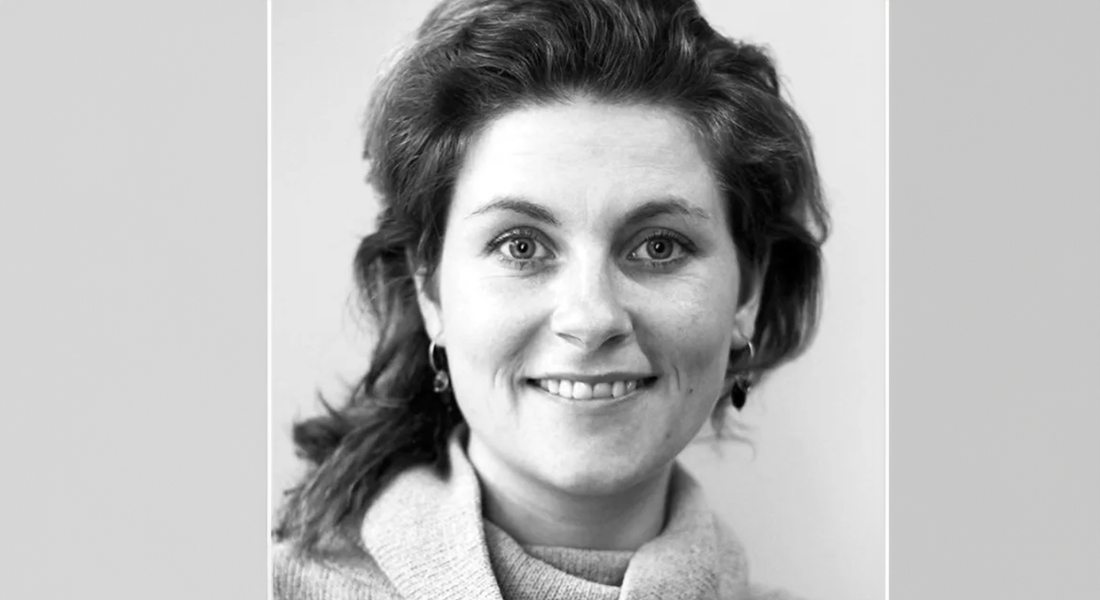Interview with Marianne Bach Mosebo

What do you do at University College Copenhagen and how does your anthropological expertise inform your research interests?
I’m an assistant professor at the Emergency and Risk Management BA programme, where my main teaching task is teaching International Disaster Management to third semester students. My research focuses on the social, cultural and power dynamics of humanitarian response, e.g. the role of affected populations, equity, marginalization and decolonization in partnerships, and possible improvements.
My research is predominantly using ethnographic methods and is heavily influenced by critical anthropological theory, e.g. post-colonial studies, decolonial philosophy, critical feminist and race theory. At the same time, I find a lot of inspiration from collaborations with my colleagues. We are an interdisciplinary team focusing on the same phenomena from different angles. I believe that the interdisciplinarity offers a fantastic opportunity to think holistically about the dynamics of the professions that we focus on.
How would you describe the current challenges that characterize the partnerships between local and international actors in the humanitarian response?
Unfortunately, there are a lot of challenges at various levels, and I think what is needed is very much the operationalisation of what humanitarian actors can actually do about it. I generally try in my research to focus on the practical level with actors on the ground, who are the ones that can effectuate change.
Anyway, to mention a few challenges that are significant, the first would be the most cited and well-documented challenge of unbalanced funding mechanisms, where money is funneled through international actors, which means that the economic and decision-making power falls heavily to them.
The money the local actors receive is tied to specific budget lines, which means that the flexible part of funding to be used for organizational development, specialisations and work security stays with the large international actors. The local actors continue on contract-to-contract basis working under less protection, even though their work exposes them to larger threats. The system does not enable them to grow but keeps them at a status quo.
It also means that local actors do not have the direct contact to donor, but only to international actors, who are middlemen. Even if local actors are often involved in providing inputs into project designs, they stand outside of influence in the rest of the project cycle and play the role of sub-granted service-providers of specific activities who do not have the full overview of the whole project. Local actors rarely even see the full project documents, but only their cut-out part of it. This literally means that they play a vital part in projects, but they carry it out blindfolded.
Local actors have contextualized and timely knowledge as well as direct inputs from the affected people, which means that they are aware of what works and what does not, but often they experience that their suggested changes are not considered. The programming is not flexible, and the local actors are forced to carry out activities they know work poorly or are inappropriate in a variety of ways.
Underlying all of it, is the humanitarian system’s undercurrent of colonial legacy and ongoing racism, which lies as an unsettling, unaddressed, and unsolved issue in the relations between local and international partners. The working of the system is informed by euro-centric ideas of better and lesser knowledge and capacity, and practices and partnerships are entrenched in “white saviourism”. And again, examples of manifestations of this are many, such as recruitment processes, where degrees from Global South universities are not considered as level with degrees from Global North universities, or the unbalanced decision-making structures in projects, or lack of influence in agenda-setting at global level, etc.
Tell us more about the new projects you are engaged in.
A colleague and I are currently undertaking a study for WFP on drones and AI usage in disaster management and humanitarian aid. The main aim is to investigate how the technology can benefit disaster assessments, while also maintaining a people-centered focus for appropriate, relevant and coherent intervention.
I am also exploring a collaboration with OXFAM Great Britain around the theme of Risk and Partnerships management in Fragile and Conflict-Affected Contexts (FCAC). The idea is to illuminate the dynamics behind the lack of equitable decolonisation to a promised and necessary equitable decolonisation through scrutinization into one of the world’s biggest, most progressive humanitarian actors’ partnership modalities, and challenges which become particularly obvious in challenging contexts.
Finally, we have an application out for a project investigating the question: “Is pastoralism a form of climate adaptation or a driver of climate change?”, which responds to a knowledge gap on the role of indigenous knowledge within climate adaptation and resilience research using pastoralism in Karamoja, Uganda, as a case. Pastoralism as an indigenous knowledge and food production system is interesting, as pastoralism often is critiqued for exacerbating climate change, while it also plays the part of indigenous knowledge and food production system which has proven adaptive to harsh climate conditions through history.
What are the next steps for your projects?
In the drone project, the data is currently being transcribed and we need to start the analysis and write up of the results, which will be very interesting. Since we are disaster researchers, and not drone and AI experts, we have taken quite an explorative approach to the study, so we are about to enter the phase of narrowing in on themes and focus areas.
The other projects are currently in waiting positions.
| If you would like to know more about Marianne Bach Mosebo’s work, please find her on LinkedIn or contact via email. |
